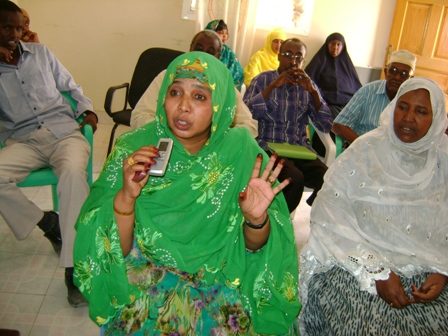Puntland: Enabling women to participate

Cultural norms, patriarchal values, economic vulnerability of women and a lack of political will to include women in processes are all obstacles that stand in the way of women across the Somali Region.
But in Puntland, this is changing. Nuria Abdi, made a recent visit to check on progress. As Interpeace’s Programme Manager for mainstreaming, she is responsible for working with the local teams to create and deliver programmes that enable women, youth and marginalized groups to be included in building lasting peace.
Working with Interpeace local partner, the Puntland Development Research Center (PDRC), they reviewed their work.
“Gender issues are perpetrating different sectors of the society. Puntlanders should be proud of the progress being made,” explains Nuria. “There are clear indicators of progress,” she adds.
- The Garowe Principles, that have just been adopted, establish that at least 30% of parliamentarians should be women.
- The Puntland government recently approved a policy to mitigate female genital mutilation (FGM).
- The constraints women are facing when it comes to security and rule of law were addressed in three separate sessions. Held in Garowe, Bossaso and Galkayo, participants came from a wide range of stakeholders. Minority groups, local NGOs, college students, housewives, internally displaced persons, women peace committee members, women police officers and officials from the Ministry of Women Development and Family Affairs were all present. Similar events were organized to address democratization and decentralization.
“What is impressive here is that women’s issues are now firmly on the agenda and are being seriously addressed. We are paving the way for women, on a broad scale, to be able to play their role at the highest levels,” Nuria confirmed.
